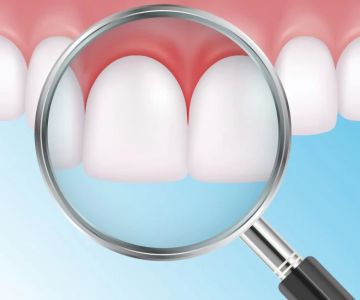How Do You Get a Disease from Oral Health Issues?
Oral health is more than just a bright smile—it's a gateway to overall wellness. Diseases originating in the mouth can spread and impact other parts of the body. Understanding how you get a disease from oral health problems helps in prevention and maintaining good health.
The mouth is home to hundreds of bacteria, many of which are harmless, but some can cause infections if they multiply excessively or invade tissue. Poor oral hygiene, dental procedures, or injuries can provide pathways for harmful microbes to enter the bloodstream or nearby tissues.
1. Common Ways Oral Diseases Develop
Dental plaque buildup is a primary cause of oral diseases. When plaque—a sticky film of bacteria—accumulates on teeth and gums, it leads to cavities, gingivitis, and periodontitis. These conditions cause inflammation, bleeding, and tissue damage, which, if untreated, can allow bacteria to spread beyond the mouth.
Certain viruses and fungi can also infect oral tissues, causing conditions such as oral thrush or herpes simplex virus infections. These pathogens are typically transmitted through saliva, direct contact, or shared utensils.
2. Transmission of Oral Diseases
Oral diseases can be transmitted through various means including:
- Direct Contact: Kissing or sharing toothbrushes and eating utensils can pass bacteria and viruses.
- Poor Hygiene Practices: Not brushing or flossing properly allows harmful bacteria to thrive.
- Dental Procedures: If sterile techniques are not followed, infections may be introduced during treatments.
- Systemic Conditions: Diseases like diabetes or immune disorders can exacerbate oral infections, making transmission easier.
3. Impact of Oral Diseases on Overall Health
The connection between oral health and systemic diseases is well-documented. Bacteria from gum disease can enter the bloodstream, potentially contributing to heart disease, stroke, diabetes complications, and respiratory infections. Pregnant women with untreated oral infections may face higher risks of premature birth and low birth weight.
These associations highlight why preventing oral diseases is critical not only for your mouth but for your entire body.
4. Prevention Strategies for Oral Disease
Maintaining excellent oral hygiene is the first line of defense. Brushing twice daily with fluoride toothpaste, flossing daily, and regular dental checkups remove plaque and detect problems early.
Avoid sharing personal items like toothbrushes and practice safe behaviors to minimize disease transmission. A balanced diet low in sugar supports healthy teeth and gums. For those with chronic health conditions, coordinating care between medical and dental providers optimizes overall health.
5. A Real-Life Story: The Consequences of Neglecting Oral Health
John, a 38-year-old software engineer, ignored mild gum bleeding for months, assuming it was minor. Eventually, he developed periodontitis, leading to severe gum infection and tooth loss. More alarmingly, John later experienced heart issues linked to the chronic inflammation originating in his mouth. His experience underscores how oral diseases can silently impact general health.
After treatment and lifestyle changes, John emphasizes the importance of daily oral care and regular dental visits to prevent such complications.
Why Expert Dental Care Matters
If you notice signs like persistent bad breath, bleeding gums, or sores that don’t heal, seek professional dental advice promptly. Early intervention prevents disease progression and reduces risks of transmission or systemic complications.
Dentistry Toothtruth offers comprehensive oral care services with a focus on disease prevention and patient education to help you maintain a healthy mouth and body.







 Westgate Dental Arts3.0 (2 review)
Westgate Dental Arts3.0 (2 review) Coventry Family Dental4.0 (247 review)
Coventry Family Dental4.0 (247 review) Familia Dental3.0 (1028 review)
Familia Dental3.0 (1028 review) Dr. Daniel S. Fife, DDS4.0 (31 review)
Dr. Daniel S. Fife, DDS4.0 (31 review) Dentistry At Suburban Square: Michael I. Wollock, DMD4.0 (1228 review)
Dentistry At Suburban Square: Michael I. Wollock, DMD4.0 (1228 review) Comfort Care Dental4.0 (1156 review)
Comfort Care Dental4.0 (1156 review) The Importance of Oral Health Education During Pregnancy for a Healthy Pregnancy
The Importance of Oral Health Education During Pregnancy for a Healthy Pregnancy Why Skipping Dental Checkups Can Lead to Bigger Oral Health Problems
Why Skipping Dental Checkups Can Lead to Bigger Oral Health Problems Best Tips for Brushing Your Teeth Properly for Healthy Gums: Essential Techniques for Oral Health
Best Tips for Brushing Your Teeth Properly for Healthy Gums: Essential Techniques for Oral Health Advantages of Porcelain Dental Restorations
Advantages of Porcelain Dental Restorations How Can Diabetes Cause Tooth and Gum Problems? Preventing and Managing Oral Health Issues
How Can Diabetes Cause Tooth and Gum Problems? Preventing and Managing Oral Health Issues Healthy Habits for Promoting Good Oral Health and Hygiene: Tips for a Healthy Smile
Healthy Habits for Promoting Good Oral Health and Hygiene: Tips for a Healthy Smile